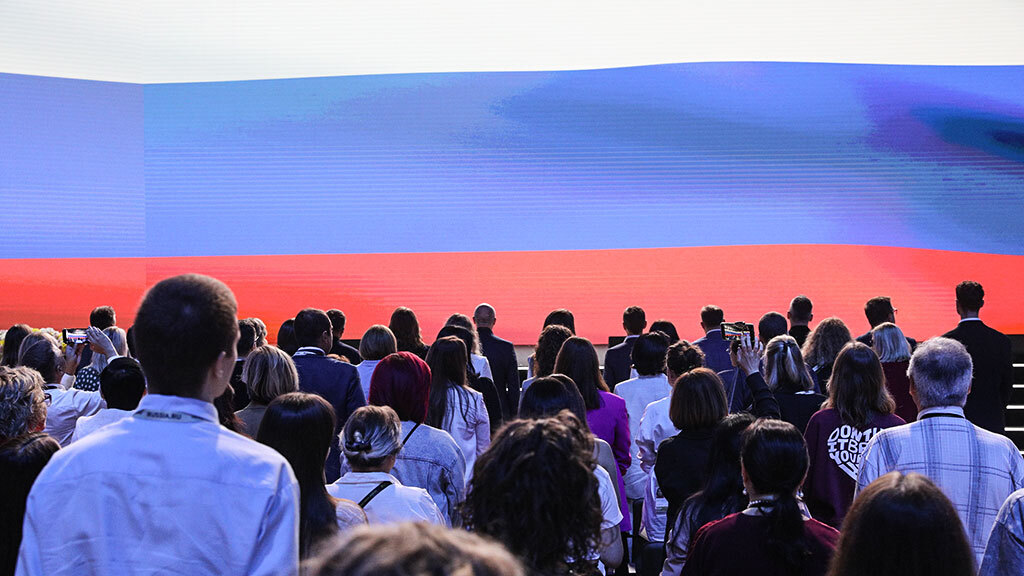Russia Is Shaping a New State Ideology Called the “Russian Dream”

A new ideological platform, the “Russian Dream”, is gaining momentum in Russian political circles.
Experts describe it as an attempt to officially legalize a state ideology,
directly linked to increasing control over public opinion and the search for a
new national idea after a prolonged political and economic crisis.
According to the first public statements by the project’s
initiators, the ideology is based on Slavophile
principles, Orthodox tradition, and the “eastern roots” of Russian civilization.
This approach is positioned as an alternative
to Western liberal values, which are portrayed as symbols of the
“degeneration of the West”.
Officials have not yet provided a clear definition of what
the “Russian Dream” will entail. However, political analysts argue that the
project seeks to establish a new “social
contract” between the state and the population, where loyalty will be exchanged for “stability,
spiritual values, and national pride”.
The “Russian Dream” is clearly intended to replace the now
unpopular slogans of the “Russian World” and Eurasian integration. The Kremlin
is trying to relaunch its narrative of
a “special path” amid international isolation and a declining standard
of living.
The emphasis on “eastern roots” demonstrates Russia’s
continued pivot towards China, Iran,
and other eastern partners. The ideological proximity to Confucian and
Islamic governance models – emphasizing tradition, collectivism, and strong
statehood – could form the basis for creating a new bloc of authoritarian states.
The creation of an explicit ideology suggests that the Kremlin
seeks to institutionalize propaganda
in order to secure long-term public support. The “Russian Dream” could become
an ideological filter for media,
education, and culture.
However, the Slavophile rhetoric may cause tension among Russia’s non-Russian ethnic groups, particularly in Muslim-majority republics, raising doubts about its universality as a nationwide ideology. If the “Russian Dream” is formally adopted, it could become the first officially codified state ideology since the collapse of the USSR. The key question is whether it can remain viable amid economic decline and growing regional discontent.
Expert Group CCBS
 Latest news
Latest news Latest news
Latest newsTrump and Putin Prepare to Meet Ahead of Zelensky’s White House Visit: A New Phase of Diplomacy or Pressure on Kyiv?
17.Oct.2025
A Shadow over the Russian-Azerbaijani Thaw: What Lies Behind the Arrest of Former Presidential Chief of Staff Ramiz Mehdiyev?
16.Oct.2025
Russia and Syria: A New Chapter in Relations After the Coup
16.Oct.2025
NATO and EU Join Forces to Build a “Drone Wall”
15.Oct.2025
Trump: New bonds of friendship to join Armenia to Azerbaijan
14.Oct.2025
UK to lift its arms embargo on Armenia, Azerbaijan
14.Oct.2025
Russia Opens New Criminal Case Against Opposition Figure Khodorkovsky
14.Oct.2025
Expert analysis by Tigran Khzmalyan: If Pashinyan wins again, Armenia will fall completely under Russia’s influence
14.Oct.2025
The Kremlin Warns the West of Dangerous Escalation: U.S. Plans to Supply Tomahawk Missiles to Ukraine
12.Oct.2025
Moscow Admits Guilt for Downing Azerbaijani Plane: Putin and Aliyev Show “Mutual Understanding of Authoritarian Allies”
10.Oct.2025

 21 Oct 2025
21 Oct 2025








